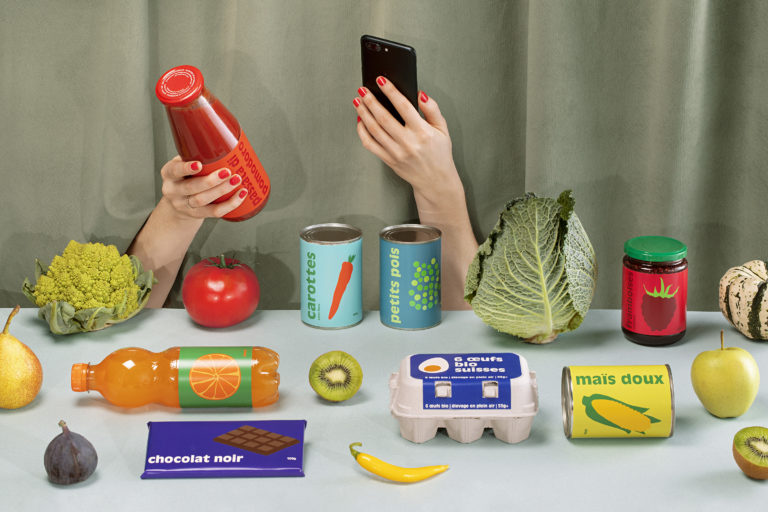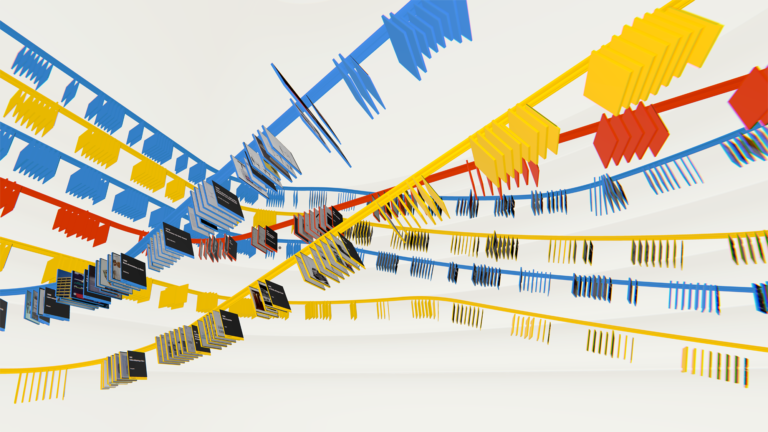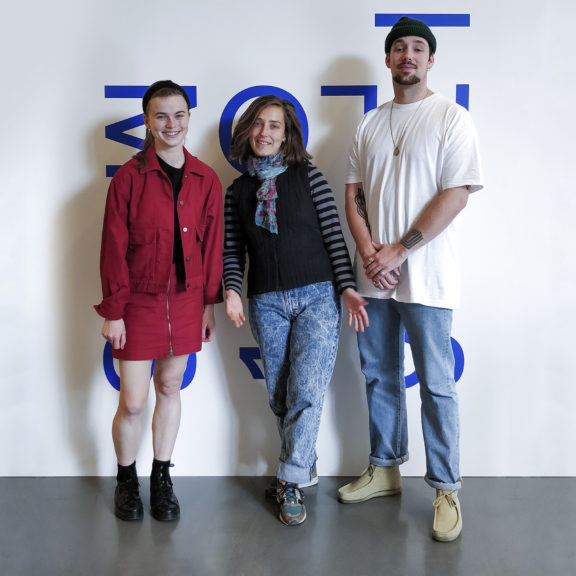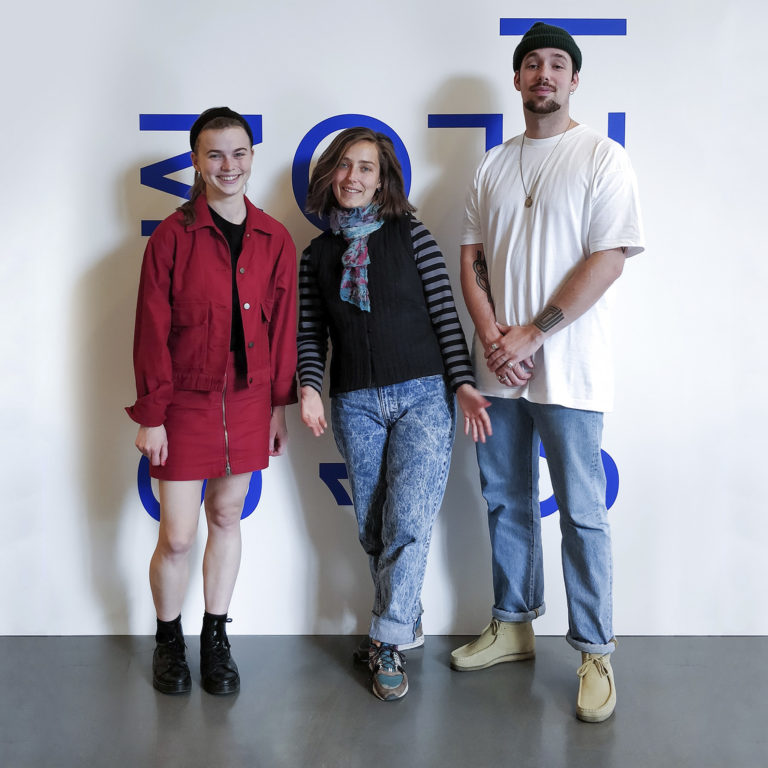Congratulations to our 2019 Graduates
Based on a transdisciplinary approach, the Master of Advanced Studies in Design Research for Digital Innovation invites students to reflect on emerging technologies with a human-centered perspective. They explore their potential and develop unprecedented uses in collaboration with designers, engineers, architects and psychologists.
Food Talks by Emily Groves
Food Talks is a design research project exploring how augmented reality (AR) can be used to show nutritional and environmental data about food. As current food labels are often misunderstood, Emily aimed to create a credible link between the intangible digital data of a product and its physical form. She first developed a public installation for the supermarket environment and then moved on to design a more personalised mobile application. Interviews, prototyping and testing with real consumers throughout the process allowed her to determine specialized visual and interaction principles for AR.


Roger Tallon: Archives in Motion by Elise Migraine
Roger Tallon : Archives in Motion by Elise Migraine is a design research that generated an architectural system to sensitively represent a digital archive. It evolved around the design of Roger Tallon: Archives in Motion, a virtual reality experience, which was unveiled in October 2018 at the Musée des Arts Décoratifs in Paris. The database cluster is represented in a way that goes beyond the 2D physical archive structure to allow perception and interactions in a 3D space. In doing so, it paves the way for a dynamic and interactive architecture to enable a sensitive discovery of our digital archives.
Common (Play)Ground by Pierre‑Xavier Puissant
Developed in the framework of the European STARTS programme, the project Common (Play)Ground by Pierre-Xavier Puissant focuses on artist residencies against a background of technological innovation. It explores the conditions, methods and results of 45 international residencies implemented through the use of a digital tool, and follows up on the legacy of artist residencies carried out in a scientific context. It identifies co-creation challenges and their solutions in order to reinforce the artist’s role in innovation and co-creation processes.




